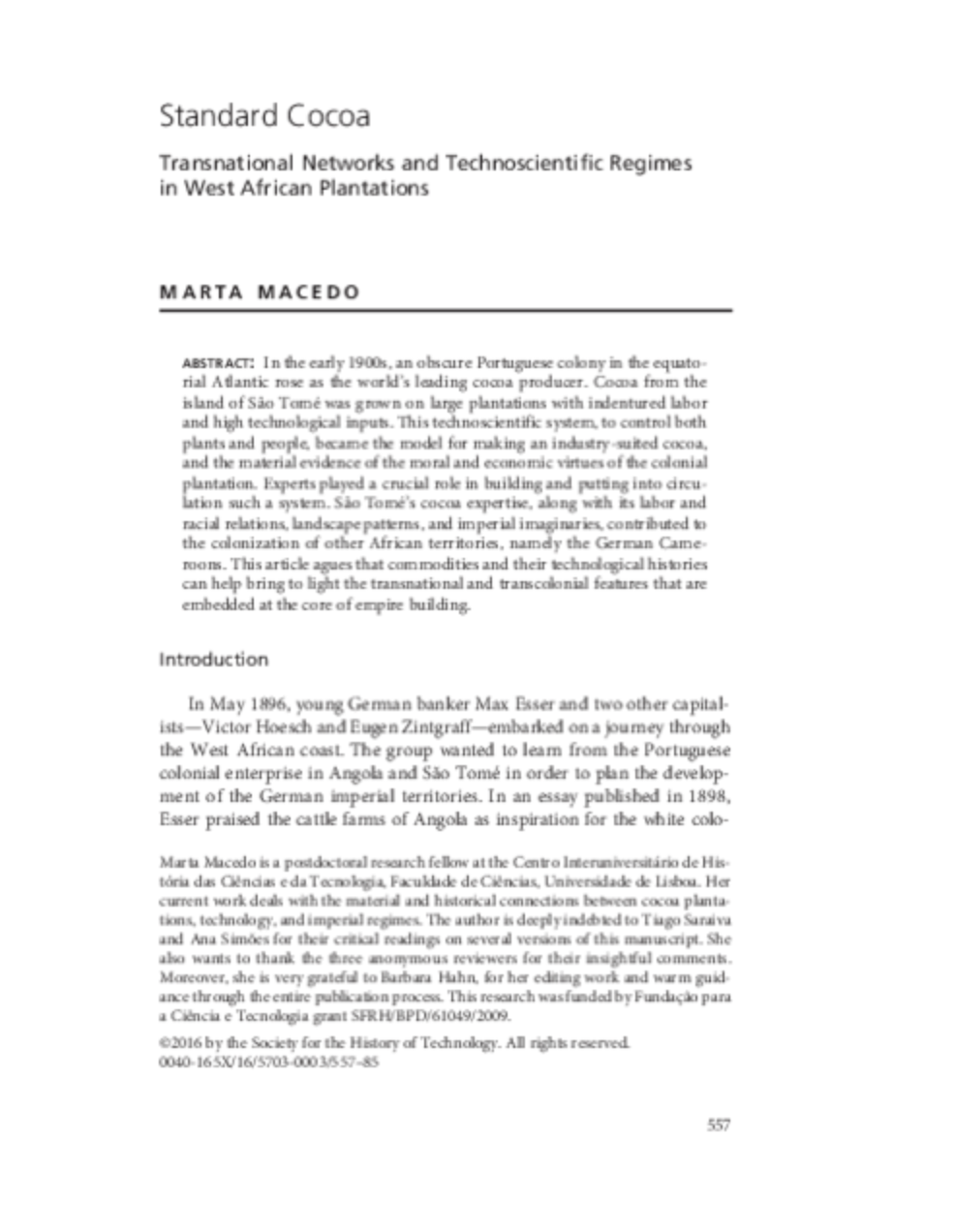Standard cocoa: transnational networks and technoscientifc regimes in west african plantations
- Autoria
- Ano
- 2016
- Periódico
Technology and Culture, Vol. 57, Nº 3
- Nº de Páginas
- 557-585

Abstract
In the early 1900s, an obscure Portuguese colony in the equatorial Atlantic rose as the world's leading cocoa producer. Cocoa from the island of São Tomé was grown on large plantations with indentured labor and high technological inputs. This technoscientific system, to control both plants and people, became the model for making an industry-suited cocoa, and the material evidence of the moral and economic virtues of the colonial plantation. Experts played a crucial role in building and putting into circulation such a system. São Tomé's cocoa expertise, along with its labor and racial relations, landscape patterns, and imperial imaginaries, contributed to the colonization of other African territories, namely the German Cameroons. This article agues that commodities and their technological histories can help bring to light the transnational and transcolonial features that are embedded at the core of empire building.